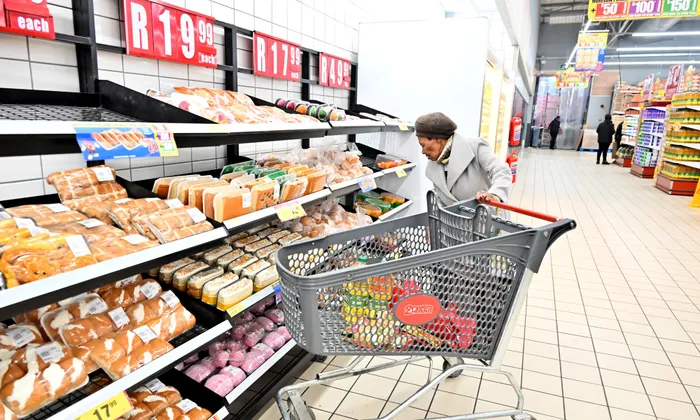
Experts weigh in on the recent government Budget announcements, highlighting the implications of pension and social grant increases, VAT stability, and rising fuel levies for consumers.
Image: Ayanda Ndamane / Independent Newspapers.
CONSUMERS can expect the increases in pensions and social grants, announced in the Finance Minister's March Budget, to remain in place - although experts warn that challenges lie ahead.
Hayley Parry, a money coach and facilitator at 1Life Insurance Truth About Money, told Business Report that it would appear that the government is still kicking the proverbial can down the road in terms of not making some of the hard choices that some of the opposition political parties suggested.
"We are seeing that in terms of debt servicing costs, which are sitting at 22 cents out of every rand of revenue that we receive. This means that it's going to be tough for the government to find the money that it needs for the expenses, if not this year, then most definitely next year. From a consumer perspective, however, we have seen that a number of the announcements made in the March budget remain the same. However, there are a couple of changes," Parry said.
"On the positive side for consumers, we have seen that VAT is going to remain at 15% instead of being increased. Things like the pension and social grant increases that were announced in March have also been retained.
"However, the announcement of an expansion of the zero-rated basket of goods has been removed, and there is also still no adjustment to personal income tax brackets or medical tax credits. In addition to that, what we didn't see in March, which has been added in order for the government to recoup a little bit more money into the coffers, is that a fuel levy increase has been announced from 1 June. There will be s 16-cent per litre increase on petrol and 15 15-cent per litre increase on diesel," Parry added.
Tando Ngibe, senior manager at Budget Insurance, said that retaining the grant increases from the March budget is positive for the recipients and it provides some financial relief, especially important for low-income and vulnerable groups.
Ngibe added, "The above-inflation increases in sin tax that were announced in the March budget have also been retained. This could lead to higher prices for these products, which will impact the consumers who purchased them. The minister also announced an increase in the fuel levy. This increase is likely to have a widespread impact on consumers by raising transportation costs. This could lead to higher prices for goods and services as transportation costs are a significant component of supply chains."
"So, the final thought from a Budget Insurance point of view is that consumers should prioritise essential products and services, reduce unnecessary and wasteful spending and remember to budget away for those rainy days," Ngibe advised.
'The real economic challenges persist'
Meanwhile, Abigail Moyo, spokesperson of the trade union UASA, said that the third version of the 2025/26 budget, presented by Godongwana, revealed a worsening debt outlook, indicating that South Africa is still struggling to control its debt.
Moyo said, "This escalating debt burden, compounded by a reduced GDP growth forecast of 1.4%, threatens job creation and economic sustainability. Slower growth and increasing debt costs restrict the government’s ability to invest in infrastructure and social services, key drivers of employment, while raising the likelihood of future tax hikes for the citizens of South Africa."
She added that while the VAT increase was reversed, the government raised the general fuel levy.
"Additionally, the expansion of the zero-rated basket, which was intended to alleviate the impact of the VAT increase on poorer households, has been removed. Unfortunately, the challenges are not yet over. The minister has noted that the 2026 budget will need to introduce new tax measures to raise R20 billion, which could further burden consumers and taxpayers," Moyo said.
"Without a practical plan for job creation within the financial year, this situation translates to fewer opportunities and less room for business investments, leading to slow economic growth and a lack of structural reforms. Outside of much-needed spending allocations for health services, education, state-owned enterprises (SOEs), the security cluster, Sassa grants, and Covid-19 social relief measures, the Budget does not offer any new or practical solutions beyond what has been presented in the previous versions," she said.
"The real economic challenges persist without tangible solutions for South Africans. Where are the promised jobs, given that the unemployment rate remains high? There was a promise of economic transformation and a turnaround for SOEs to become functional again, yet years have passed without progress.
"Will we face the medium-term budget later this year, entering the new financial year with the same challenges, with tax hikes threatening consumer income and plans to manage national debt? Minister, we continuously call for viable solutions, but the answers remain elusive, like the hopes for job creation or the essential economic transformation our people desperately seek," Moyo said.
"UASA urges the minister to confront the real challenges facing our country. Without a definitive action plan, we cannot rely solely on hope for a better tomorrow. We must see concrete efforts and results from the government."
- BUSINESS REPORT